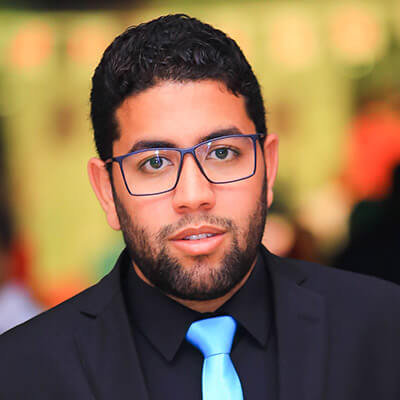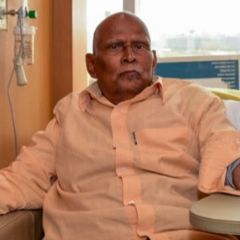"Best Oncologist in Delhi Dr. Sajjan Rajpurohit is one of the best cancer doctors I've ever had. He has always been there when I needed him, whether helping me with my diagnosis or just giving me regular checkups. I'm very pleased with his services and would highly recommend him to any of my friends."

Radiation Therapy
Radiation therapy is a type of cancer treatment that uses high doses of radiation to kill cancer cells and shrink tumors. Its goal is to destroy or damage cancer without harming healthy cells. At low doses, X-rays use radiotherapy (radiation) to look inside your body, as is done for X-rays of your teeth or broken bones.
Get the best treatment for cancer in Delhi from the Best medical oncologist.
Cancer cells whose DNA is damaged stop dividing and die. When damaged cells die, they break down and are removed by the body.
Radiation therapy does not kill cancer cells immediately. It takes several days or weeks for the DNA to be damaged enough for cancer cells to die. Then, cancer cells continue to die for weeks or months after radiation therapy ends.
Get Radiation therapy consultancy by the best cancer specialist in Delhi
Radiation therapy can be used during different stages of cancer treatment and for different outcomes. Radiation therapy can be used to:
- To reduce symptoms in an advanced stage, last-stage cancer
- As a primary treatment for cancer
- In combination with other cancer treatments
- To shrink the tumor before surgery
- To kill any remaining cancer cells after surgery
Types of Radiation Therapy
There are two main types of radiation therapy:-
External beam radiation therapy
External beam radiation therapy is a machine that targets radiation at your cancer. The machine is large and can be quite noisy. It doesn't touch you, but moves around you, sending radiation from multiple directions to one part of your body.
External beam radiation therapy is a local treatment, which means it treats a specific part of your body. For example, if you have cancer in your lungs, you will only have radiation to your chest, not your entire body.
Internal radiation therapy
Internal radiation therapy is a treatment in which a source of radiation is injected inside your body. The radiation source can be solid or liquid.
Internal radiation therapy with a solid source is called brachytherapy. In this type of treatment, seeds, ribbons, or capsules containing a radiation source are placed in or near the tumor in your body. Like external beam radiation therapy, brachytherapy is a local treatment and only treats a specific part of your body.
Benefits of radiation therapy for cancer treatment -
The most prominent benefit is that this therapy can help stop the growth of cancer.
In some people who have pancreatic cancer or an early stage of cancer, radiotherapy makes surgery possible.
Each stage of treatment lasts 10 to 30 minutes and doesn't require you to stay in the hospital.
If you wish, you can continue with your normal lifestyle, such as going to work, etc.
If you have advanced-stage cancer, radiotherapy can work to control symptoms and relieve pain.
Side Effects of Radiation Therapy
Radiation therapy is used on a certain organ, so its harmful effects also depend on the organ that is being treated. However, most people have very few side effects, the effect can vary from person to person.
You may experience one or more of the following effects during your cancer treatment -
Nausea
Depending on which part of your body is being treated, you may feel nauseous. It doesn't happen with everyone. Tell your best medical oncologist if you feel this, as it can be controlled with medicine or diet.
Diarrhea
You may get diarrhea, if this happens, tell your doctor so that he can give you some medicine for it. He can also give you suggestions on how to change your diet.
Frequent urination problem
If this treatment is being done in your lower abdomen, then you may have problems with frequent urination. If this happens, tell your doctor so that you can have a urine test done to see if you have an infection. (Read more: Burning in urine treatment)
Mouth Cancer
This problem occurs only when the treatment is done around the mouth and throat. (Read more - Mouth cancer)
Hair fall
This problem also occurs in the same part of the body where the treatment is done. For example, if you are being treated for your scalp, you may have hair loss on your scalp, and if you are being treated for your chest, then you will have only chest hair loss.
Whether your hair will regrow or not depends on the level of radiation. Your doctor can tell exactly how quickly your hair will or will not regrow.
(Read more: Blood Cancer)

About Dr. Sajjan Rajpurohit
Dr. Sajjan Rajpurohit has been a practicing physician for the past 22 years. He is a qualified MBBS with MD in Medicine and DNB in Medical Oncology and currently he is Director of Medical Oncology at BLK Super Speciality Hospital.





